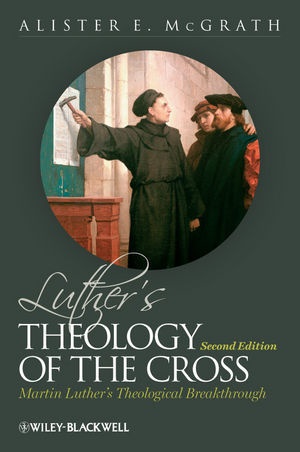Read more
Informationen zum Autor Alister E. McGrath is Head of the Centre for Theology, Religion & Culture, and Professor of Theology, Ministry, and Education at King's College, London. A world-acclaimed theologian and intellectual historian, McGrath is the author of numerous books including The Intellectual Origins of the European Reformation 2nd edition (2003) and Reformation Thought: An Introduction 3rd edition (1999). Klappentext Luther's Theology of the Cross represents a fully revised and updated edition of the classic 1985 text that expands on the author's ongoing research and reflects 25 years of Luther scholarship.* Rewritten and expanded edition of a highly-acclaimed classic text* Incorporates primary and secondary sources that have become available since the publication of the first edition* Draws on advances in our understanding of the late medieval intellectual, cultural, and religious background of Luther's early development, and the nature of Luther's doctrine of justification (including the so-called 'Finnish' school), many of which have not yet been incorporated into Luther scholarship* Luther's 'theological breakthrough' continues to be of central importance to Reformation Studies and the development of Protestantism* Written by one of the world's leading Protestant theologians, who is an authority on the development of the doctrine of justification. His classic work Iustitia Dei: A History of the Christian Doctrine of Justification is now in its third edition (2005) Zusammenfassung In this revised edition of his classic text, Alister McGrath draws on new sources and advances in our understanding of late medieval intellectual, cultural and religious life to offer a fresh understanding of this pivotal moment in Protestant history. Many of these developments have not yet been incorporated into Luther scholarship. Inhaltsverzeichnis Part One: The Background: Luther as a Late Medieval Theologian 1509-141. The Dawn of the Reformation at Wittenberg2. Headwaters of the Reformation at Wittenberg: Humanism, Nominalism, and the Augustinian Tradition3. Luther as a Late Medieval TheologianPart Two: The Breakthrough: Luther in Transition 1514-194. Mira et nova diffinitio iustitiae: Luther's Discovery of the Righteousness of God5. Crux sola est nostra theologia: The Emergence of the Theology of the Cross 1514-19Select BibliographyIndex...
List of contents
Part One: The Background: Luther as a Late Medieval Theologian 1509-14
1. The Dawn of the Reformation at Wittenberg
2. Headwaters of the Reformation at Wittenberg: Humanism, Nominalism, and the Augustinian Tradition
3. Luther as a Late Medieval Theologian
Part Two: The Breakthrough: Luther in Transition 1514-19
4. Mira et nova diffinitio iustitiae: Luther's Discovery of the Righteousness of God
5. Crux sola est nostra theologia: The Emergence of the Theology of the Cross 1514-19
Select Bibliography
Index

